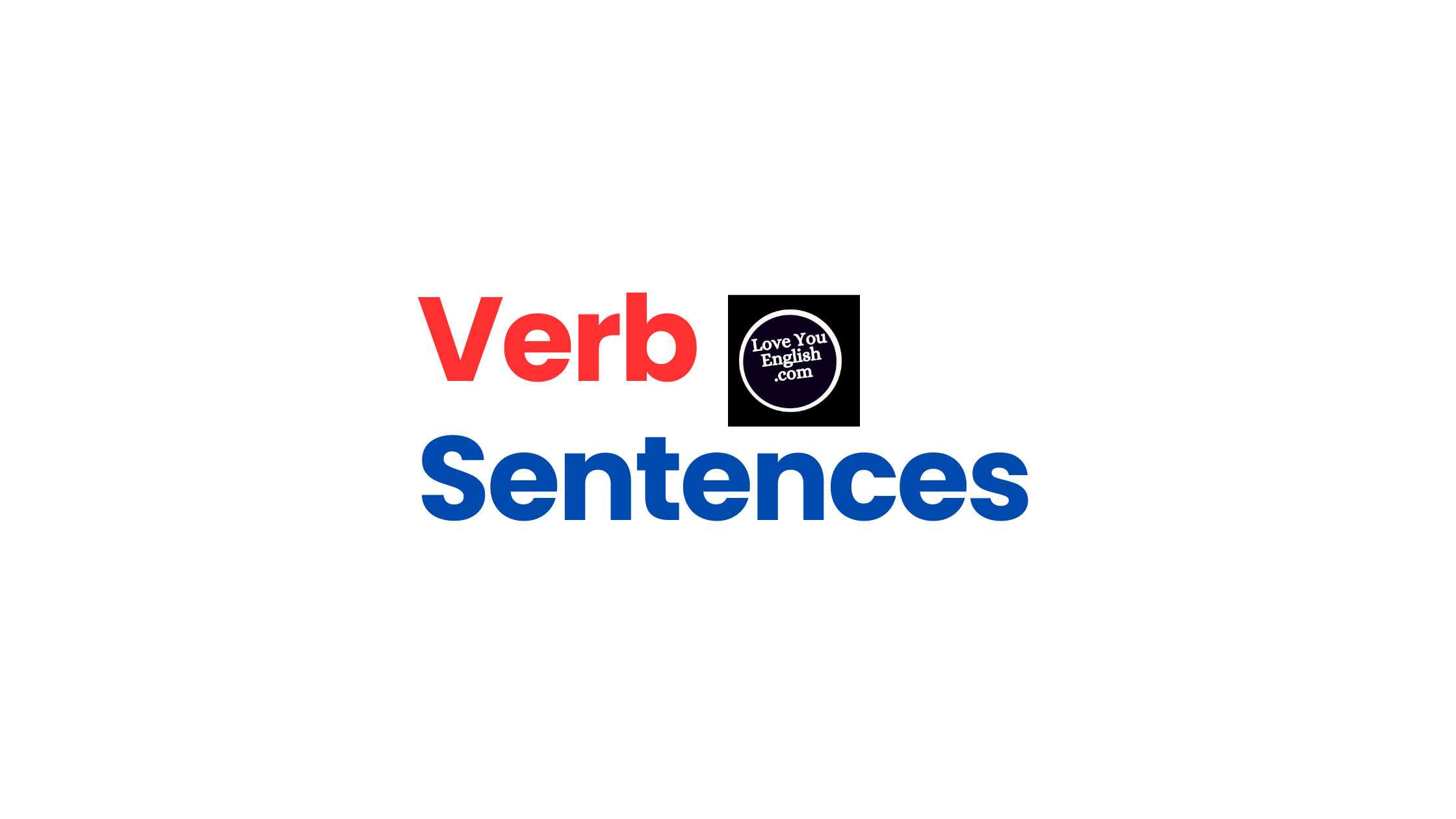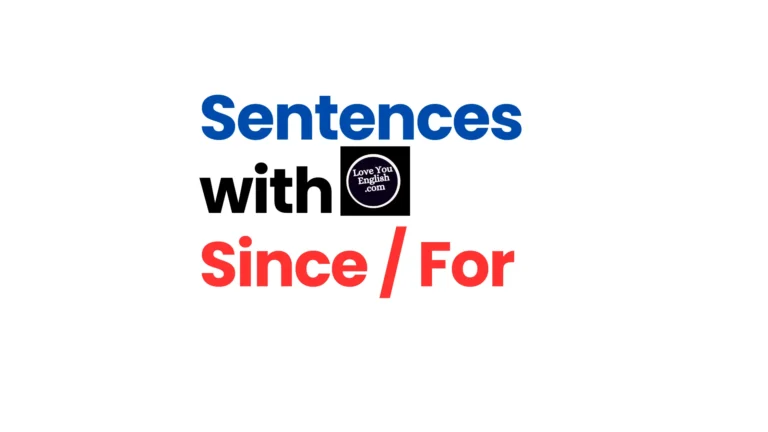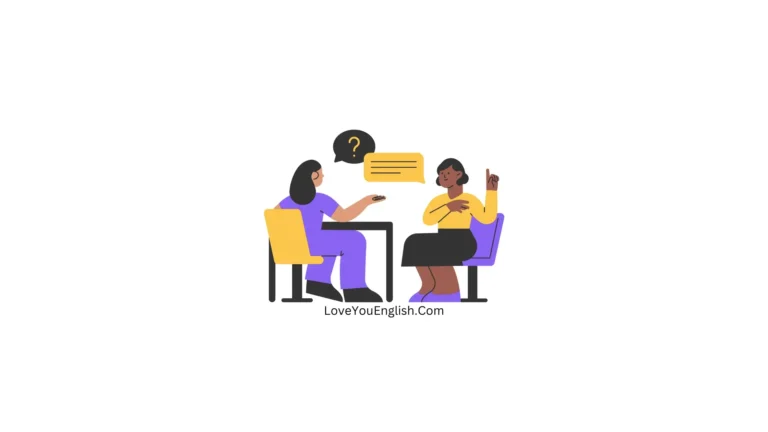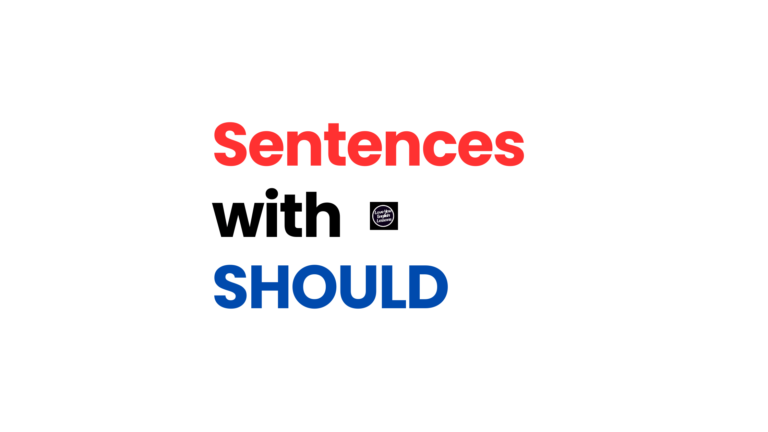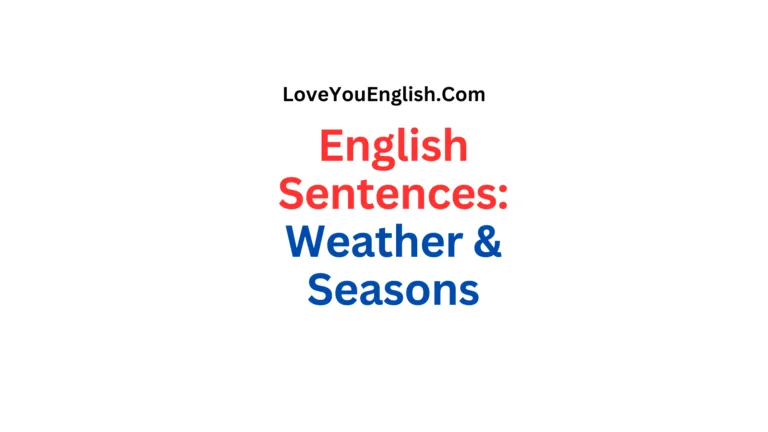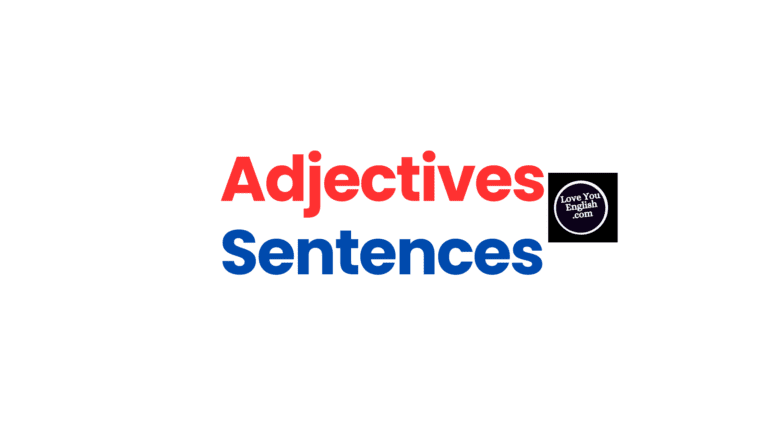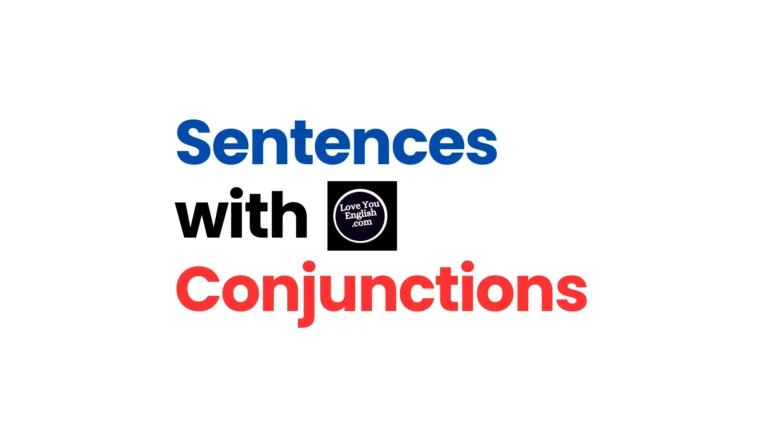English Verbs: Your Complete Guide with Example Sentences
English Verbs: Your Complete Guide with Example Sentences
Verbs are essential parts of any language, and English is no exception.
They’re the words that show action or state of being in a sentence. Without verbs, our sentences would be incomplete and wouldn’t make much sense.
In this post, we’ll explore English verbs in depth, looking at their types, tenses, forms, and uses.
I’ll also provide plenty of example sentences to help you understand how these verbs work in practice.
What is a Verb?
A verb is a word that expresses an action, occurrence, or state of being. It’s often called the “doing word” in a sentence.
For example:
- The dog barks. (action)
- The sun rises every morning. (occurrence)
- She is happy. (state of being)
Types of Verbs
There are several types of verbs in English.
Let’s look at each type with examples:
a) Action Verbs
These verbs express physical or mental actions.
For example:
- She runs every morning.
- The children play in the park.
- I think about my future often.
b) Linking Verbs
These verbs connect the subject of a sentence to additional information about the subject.
The most common linking verb is “to be” (am, is, are, was, were).
For example:
- The cake smells delicious.
- He seems tired today.
- The weather remains cold.
c) Helping Verbs (Auxiliary Verbs)
These verbs help the main verb in a sentence to express different tenses, moods, or voices.
Common helping verbs include be, do, have, will, shall, can, could, may, might, must, ought to, and should.
For example:
- She is singing a beautiful song.
- They have finished their homework.
- We should leave now to avoid traffic.
d) Modal Verbs
These are a type of helping verb that express necessity, possibility, permission, or ability.
Examples include can, could, may, might, must, shall, should, will, and would.
For example:
- You should eat more vegetables.
- It might rain later today.
- We can go to the beach tomorrow.
Verb Tenses
Verb tenses indicate when an action takes place. English has three main tenses: past, present, and future.
Each of these can be further divided into four aspects: simple, progressive (continuous), perfect, and perfect progressive.
Let’s look at each tense with examples:
a) Present Tense
- Simple Present: I eat breakfast every day.
- Present Progressive: I am eating breakfast right now.
- Present Perfect: I have eaten breakfast already.
- Present Perfect Progressive: I have been eating breakfast for an hour.
b) Past Tense
- Simple Past: I ate breakfast yesterday.
- Past Progressive: I was eating breakfast when you called.
- Past Perfect: I had eaten breakfast before I went to work.
- Past Perfect Progressive: I had been eating breakfast for an hour when you arrived.
c) Future Tense
- Simple Future: I will eat breakfast tomorrow.
- Future Progressive: I will be eating breakfast at 8 AM tomorrow.
- Future Perfect: I will have eaten breakfast by 9 AM.
- Future Perfect Progressive: I will have been eating breakfast for an hour by the time you arrive.
Verb Forms
English verbs have several forms.
The main ones are:
a) Base Form (Infinitive) This is the basic form of the verb, usually preceded by “to”.
For example:
b) Present Tense For most verbs, this is the same as the base form, except for the third person singular (he/she/it), which usually adds -s or -es.
For example:
- I eat (base form)
- He eats (third person singular)
c) Past Tense For regular verbs, this is formed by adding -ed to the base form.
For example:
- walk → walked
- talk → talked
Irregular verbs have unique past tense forms.
For example:
- eat → ate
- go → went
d) Past Participle For regular verbs, this is the same as the past tense. For irregular verbs, it may be different.
For example:
- walk → walked (regular)
- eat → eaten (irregular)
e) Present Participle This is formed by adding -ing to the base form.
For example:
- walk → walking
- eat → eating
Subject-Verb Agreement
In English, the verb must agree with the subject in number (singular or plural) and person (first, second, or third).
This is most noticeable in the present tense.
For example:
- I walk to school. (first person singular)
- You walk to school. (second person singular)
- He/She/It walks to school. (third person singular)
- We walk to school. (first person plural)
- You walk to school. (second person plural)
- They walk to school. (third person plural)
Explore more topics:
- English Idioms You Should Learn
- Phrases for Sharing Opinions in English
- Common English Idioms with Meanings
- Common English Business Idioms
- C1 and C2 English Idioms
Regular vs. Irregular Verbs
a) Regular Verbs These verbs follow a standard pattern for forming their past tense and past participle – usually by adding -ed.
For example:
- play → played
- cook → cooked
- work → worked
b) Irregular Verbs These verbs don’t follow the standard -ed pattern for past tense and past participle. They have unique forms that must be memorized.
Some common irregular verbs include:
- go → went → gone
- eat → ate → eaten
- be → was/were → been
- do → did → done
Transitive and Intransitive Verbs
a) Transitive Verbs
These verbs require a direct object to complete their meaning.
For example:
- She sent a letter. (The verb “sent” requires the object “letter”)
- They bought a new car. (The verb “bought” requires the object “car”)
b) Intransitive Verbs
These verbs don’t require an object to complete their meaning.
For example:
- The baby sleeps peacefully.
- The sun rises in the east.
Some verbs can be both transitive and intransitive, depending on their use in a sentence.
For example:
- The chef cooks well. (intransitive)
- The chef cooks delicious meals. (transitive)
Phrasal Verbs
Phrasal verbs are combinations of verbs and prepositions or adverbs that create a new meaning.
They’re very common in English and can be challenging for learners.
Here are some examples:
- give up (to stop trying): She gave up on her dream of becoming a doctor.
- look after (to take care of): Can you look after my dog while I’m on vacation?
- run out of (to use all of something): We’ve run out of milk.
- get along (to have a good relationship): I get along well with my neighbors.
Verb Moods
Verb moods indicate the attitude of the speaker towards what they’re saying.
The main moods in English are:
a) Indicative Mood
This is used for stating facts or asking questions.
For example:
- The sun rises in the east.
- Did you finish your homework?
b) Imperative Mood
This is used for commands or requests.
For example:
- Close the door, please.
- Don’t touch that!
c) Subjunctive Mood
This is used for hypothetical situations, wishes, or formal commands. It’s less common in modern English but still used in certain phrases.
For example:
- If I were you, I would accept the job offer.
- I wish it were summer already.
- The committee recommends that he be appointed to the position.
Active and Passive Voice
a) Active Voice In active voice, the subject of the sentence performs the action.
For example:
- The cat chased the mouse.
- John wrote the letter.
b) Passive Voice In passive voice, the subject receives the action. The object of the active sentence becomes the subject of the passive sentence.
For example:
- The mouse was chased by the cat.
- The letter was written by John.
Conditional Verbs
Conditional verbs are used to create conditional sentences, which express hypothetical situations and their consequences.
There are four main types of conditionals in English:
a) Zero Conditional Used for general truths or scientific facts.
Structure: If + present simple, present simple
Example: If you heat water to 100°C, it boils.
b) First Conditional Used for possible future events.
Structure: If + present simple, will + infinitive
Example: If it rains tomorrow, we will stay at home.
c) Second Conditional Used for unlikely or imaginary situations in the present or future.
Structure: If + past simple, would + infinitive
Example: If I won the lottery, I would travel the world.
d) Third Conditional Used for impossible situations in the past.
Structure: If + past perfect, would have + past participle
Example: If I had studied harder, I would have passed the exam.
Gerunds and Infinitives
a) Gerunds
These are verb forms that end in -ing and function as nouns.
For example:
- Swimming is my favorite sport.
- I enjoy reading books.
b) Infinitives
These are the base form of the verb, usually preceded by “to”.
For example:
Some verbs are followed by gerunds, some by infinitives, and some can be followed by either.
For example:
- I like swimming. (gerund)
- I like to swim. (infinitive)
- She stopped smoking. (gerund)
- She stopped to smoke. (infinitive – but note the change in meaning)
Stative Verbs
Stative verbs describe states rather than actions. They are typically not used in continuous tenses.
Common stative verbs include:
- be: I am happy.
- have (possession): She has a new car.
- know: They know the answer.
- like: I like chocolate.
- want: He wants a new job.
- understand: I understand the problem.
However, some stative verbs can be used in continuous tenses when they describe temporary situations or changing states.
For example:
- I’m loving this movie! (temporary feeling)
- She’s having a difficult time lately. (temporary situation)
Reflexive Verbs
Reflexive verbs are used when the subject and object of a sentence are the same. They are often used with reflexive pronouns (myself, yourself, himself, herself, itself, ourselves, yourselves, themselves).
For example:
- I hurt myself while cooking.
- She introduced herself to the new students.
- The cat licked itself clean.
Reciprocal Verbs
Reciprocal verbs describe actions that two or more people do to each other. They are often used with “each other” or “one another”.
For example:
Causative Verbs
Causative verbs express that someone or something makes something happen. Common causative verbs include make, let, have, get.
For example:
- I made my sister clean her room.
- The teacher let us leave early.
- I had my car repaired yesterday.
- She got her hair cut at the new salon.
Reporting Verbs
Reporting verbs are used to report what someone has said. Common reporting verbs include say, tell, ask, answer, reply, suggest, and many others.
For example:
- He said that he was tired.
- She asked if I could help her.
- They suggested going to the park.
Verb Patterns
Some verbs are followed by specific structures.
Here are a few common patterns:
- Verb + infinitive: I want to go home.
- Verb + gerund: She enjoys swimming.
- Verb + object + infinitive: They asked me to help.
- Verb + that clause: I think that it will rain.
Phrasal Verbs with Multiple Meanings
Many phrasal verbs have multiple meanings depending on the context. For example:
- pick up:
- get out:
Verbs in Idioms
Many English idioms contain verbs. Understanding these can greatly improve your fluency.
Here are a few examples:
- break the ice: to make people feel more comfortable in a social situation
- call it a day: to stop working on something
- get cold feet: to become nervous about doing something
- see eye to eye: to agree with someone
- let the cat out of the bag: to reveal a secret accidentally
Final thoughts:
Verbs are super important in English because they help us show actions, states, and things that happen.
If you learn about the different kinds of verbs and how to use them in sentences, you can get better at English.
It’s important to practice using lots of different verbs when you talk and write and pay attention to how other people use them too.
As you keep learning and using English, you’ll get more used to using verbs in the right way. It’s okay to make mistakes – that’s just part of learning.
Keep reading, listening, talking, and writing in English, and you’ll get better at using verbs.
No matter if you’re talking about what you do every day, saying what you think and feel, or talking about things that might happen, verbs are always important.
So, keep practicing, and soon you’ll be really good at using English verbs!

